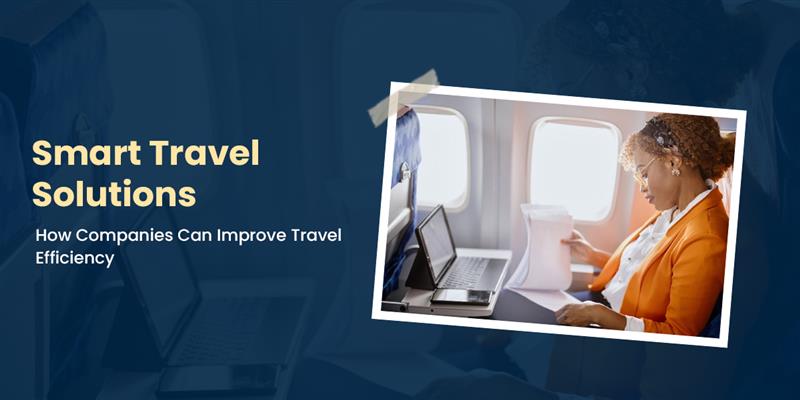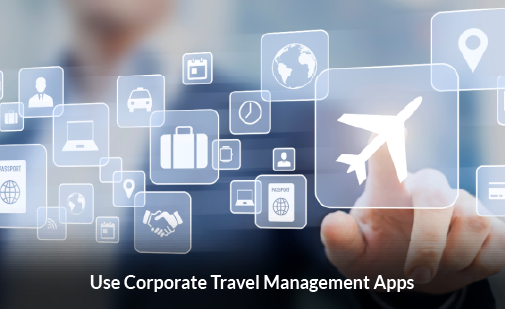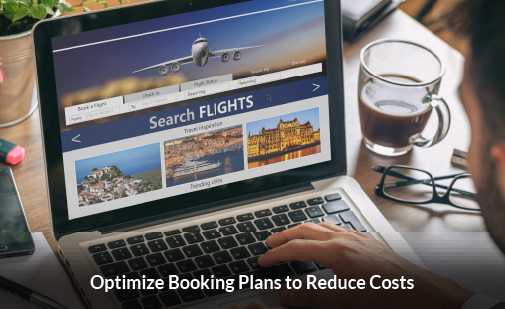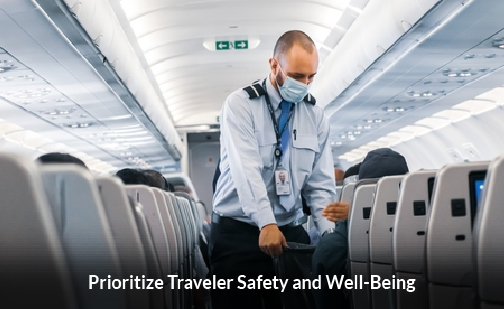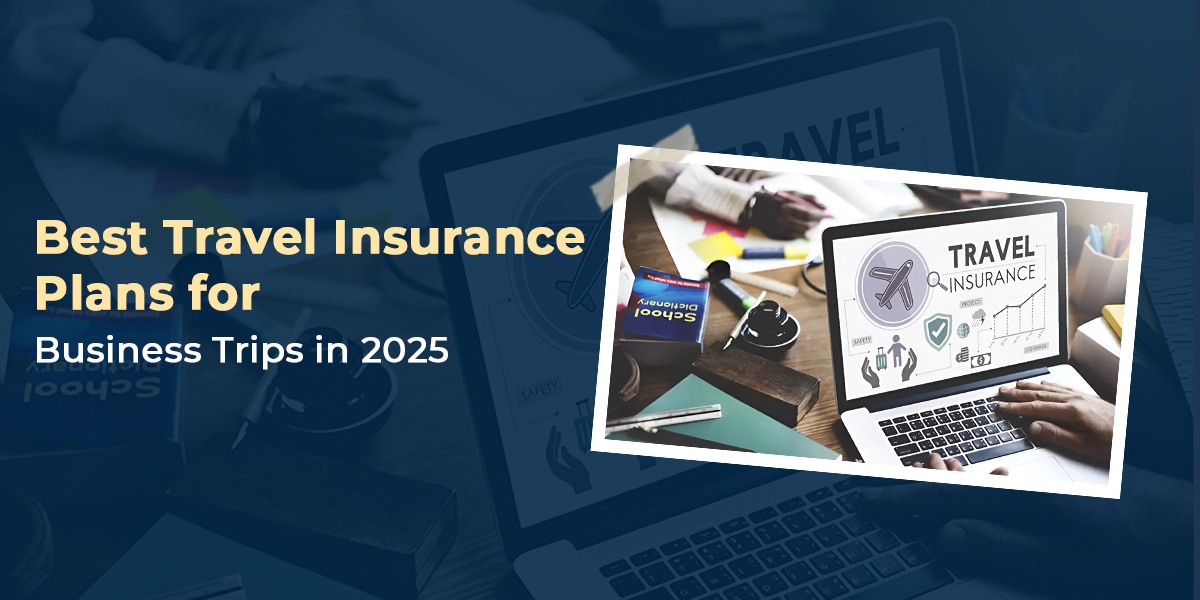All of which work toward the expansion of the organization. However, if not well planned out, traveling can turn into an absolute headache for the organization. Bad planning can lead to a lack of efficiency within the corporation, overstretch costs, and lower employeemorale. Businesses stand to gain a lot from smart travel solutions. It is possible to enhance travel efficiency while providing the employees with a travel experience without forgoing activities in the company.
In this blog, we’ll discuss the most effective ways to streamline business travel, reduce expenditures, and increase productivity.
Implement a Corporate policy
Without a clear corporate travel policy, groundwork is impossible. Businesses need to develop policies on booking procedures, preferred vendors, reimbursement policies, and expense limits. This supports accuracy, cost savings, and compliance while dealing with the complications of spending and elevating employee confusion.
Some of the most essential aspects of an effective corporate travel policy tend to include:
Preferred service vendors like airlines, cars, hotels, and car rental providers.
Safety and security protocols for all authorized personnel and travelers
Allowed reimbursements and respective limits.
Permissible expenditures before sponsorship
Guidelines on advancing bookings to save on costs.
Utilization of corporate travel management programs.
Booking flights ahead of time and restricting certain vendors, such as with last-minute planners with windowshopping, helps secure great deals, lower corporate rates, and improve overall efficiency in traveling.
Use Corporate Travel Management Apps
Modern companies stand to gain a lot from corporate travel management software. These platforms provide an all-in-one solution to manage, track, and make bookings for business trips. Some popular travel management tools are SAP Concur, TravelPerk, and Egencia.
Advantages of using travel management software include:
Reservation of flights, hotels, and transportation
Tracking and reporting of expenses
Compliance with policies while traveling in real-time
Connection with other company departments like Human Resources and Finance
Support, funds security, and risk management services whenever needed
These tools simplify automatic travel coordination, enhancing the experience for employees while giving businesses essential visibility into travel spending and trends.
Optimize Booking Plans to Reduce Costs
Business travel cost management is quite a challenge. Strategic booking practices can result in significant savings for companies, such as;
Early booking - Whenever possible, securing flights and accommodation well in advance helps save on costs and ensures better availability of resources.
Being open with travel dates - Ensuring travel dates are open can result in considerable savings as employees can use lower fares.
Use of corporate discounts - Regular work travelers accrue benefits and savings through airline, hotel, and car rental service partnerships.
Implementing Reward Programs- Using vacation reward programs like frequent flyer miles and hotel loyalty rewards can help businesses cut back on travel expenses.
Searching Alternative Airports and Airlines- Traveling to a different region brings the opportunity of flying to a different airport,which may be more economical. Even switching one airline to another can yield cost savings.
Prioritize Traveler Safety and Well-Being
Employee well-being during business trips is important for organizations. There ought to be measures for managing travel risk, such as:
Providing Travel Insurance- Traveling employees need all-encompassing insurance that guards against unanticipated medical emergencies, trip cancellations, and lost luggage.
Offering 24/7 Support- Situations like emergencies or changes in schedule can cause travel dislocation. Having an in-house travel assistance team or hiring one through a third-party provider can be beneficial in alleviating such issues.
Keeping Employees Informed- Providing essential information such as real-time updates regarding travel advisories, safety measures, and location-specific risks augments security.
Encouraging Work-Life Balance- Regular long-haul flights can be tiring and lead to burnout. Improving employee experience during travel by providing rest periods, flexible work schedules, and inviting living spaces boosts productivity.
Improve Productivity with Smart Travel Planning
Business travel should be designed to maximize efficiency while minimizing disruptions to work. Companies can achieve this by-
Choosing flexible Flight Times- Red-eye or poorly timed flights can lead to tiredness and decreased productivity. Selecting flights that align with employees’ work schedules can ensure they are well-rested and prepared.
Providing Access to Work-Friendly Stays- Selecting hotels with good internet, business centers, and meeting rooms allows employees to stay productive while traveling.
Prompting Web Meetings When Possible- While in-person meetings are valuable, companies should assess whether video conferencing can replace unnecessary travel.
Using Travel Itineraries- Grouping multiple meetings or client visits into a single trip reduces travel frequency and increases efficiency.
Promotes Sustainable Travel Approach
Implementing an eco-conscious approach in planning business trips is crucial for maintaining sustainability.
Encouragement of Train and Public Transit Use- Replacing flying with train travel and rental cars with public transport whenever feasible reduces the carbon footprint.
Choosing Nature-Friendly Hotel Partners- Collaboration with hotel franchises that harness clean energy and practice waste minimization aligns with corporate organic goals.
Carbon Release Offsetting- Various airlines and businesses provide carbon offset programs that invest in environmental industries.
Minimizing Extreme Travel- Prioritizing essential trips and replacing low-priority visits with web meetings minimizes spending.
Gather Employee Feedback and Continuously Improve
To enhance business travel policies, employers should incorporate employee feedback into their plans and policies.
Conduct Trip Experience Surveys: Interviews with travelers concerning their travel experience, challenges, and suggestions helps pinpoint gaps.
Research Travel Analytics and Compliance Trends: Studying travel expenditure, booking, and travel adherence patterns can reveal areas of inefficiency or areas for increased savings.
Follow Appropriate Business Edge Innovative Travel Tools, Airline Regulations, and Hospitality Policies Trends: These unique technologies and policies ensure that a company gets the best possible Attention.
What Business Travel Will Look Like In The Future
Productivity, cost control, and employee satisfaction are three essentials that are important for business travel, and they need to be balanced with travel management systems. Travel processes and experiences can further be improved by implementing business travel policies, advanced booking techniques, expense management, responsibly minded, or together referred to as smart travel solutions. Equipped with the right tools, companies facing the challenges of business travel can maximize efficiency and eliminate excess costs.
